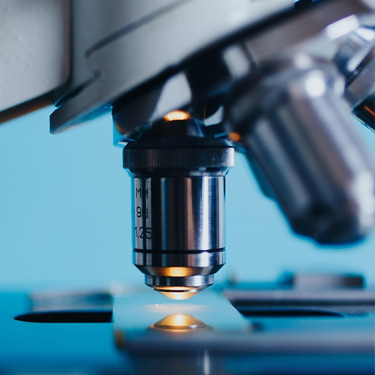Overview
The Microbiology Department at Indus Jaipur Hospital plays a crucial role in diagnosing and managing infectious diseases. With advanced equipment and expert microbiologists, the department ensures accurate detection of bacteria, viruses, fungi, and parasites. Our laboratory supports timely diagnosis and effective treatment planning, especially in cases involving antibiotic resistance. By maintaining high standards of hygiene, quality control, and safety, we contribute significantly to patient recovery and infection control within the hospital.
Treatments & Procedures Offered

Our microbiology lab offers a comprehensive range of diagnostic services to detect infections, identify pathogens, and guide effective treatment. We use modern techniques and automated systems to ensure fast and reliable results for patients and clinicians.
- Blood, urine, stool, pus, and sputum culture & sensitivity (C/S)
- Rapid antigen and PCR testing for viruses like COVID-19, Hepatitis, Dengue, and HIV
- Fungal culture, KOH mount, and antifungal susceptibility testing
- Stool and blood smear examination for parasitic infections
- Antibiotic resistance monitoring and support for antimicrobial stewardship
- Sterility testing of surgical instruments and hospital environments
- Infection surveillance and control programs in ICU and OT areas
- Environmental microbiological testing (air, surfaces, and water)
Our team works closely with clinicians to provide timely insights that help in choosing the most appropriate antimicrobial therapy. The department also plays a vital role in preventing hospital-acquired infections and supporting overall patient safety.
Patient FAQs
1. What is the role of a microbiology lab in a hospital?
A microbiology lab helps detect, identify, and monitor microorganisms that cause infections. It provides critical diagnostic information to doctors so they can choose the most effective treatment.
2. How long does it take to get microbiology test results?
It depends on the type of test. Some results (e.g., rapid tests, blood counts) are available within hours, while cultures and sensitivity tests may take 24–72 hours.
3. Are microbiology tests painful?
Most tests involve simple procedures like blood, urine, or stool collection and are not painful. For deeper infections, samples like pus or body fluids may need to be collected under sterile conditions.
4. Why is culture and sensitivity (C/S) testing important?
C/S testing identifies the microorganism causing the infection and tells doctors which antibiotics will be most effective in treating it. This helps avoid unnecessary or ineffective antibiotic use.
5. How does the department ensure quality and accuracy?
Indus Jaipur Hospital follows NABL-accredited protocols, performs regular internal and external quality audits, and uses modern equipment to ensure high diagnostic accuracy.

